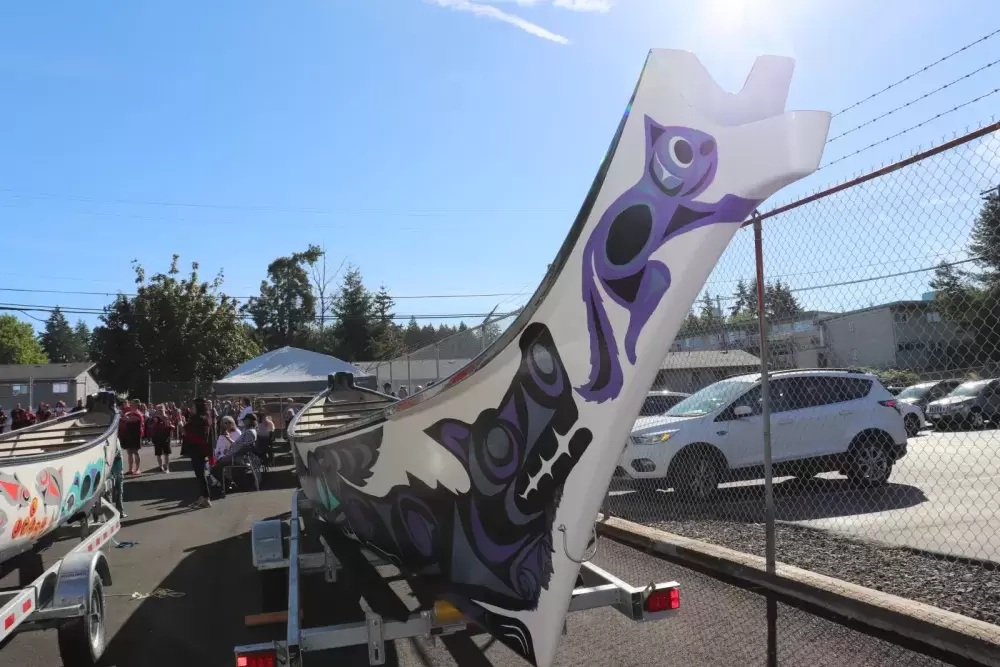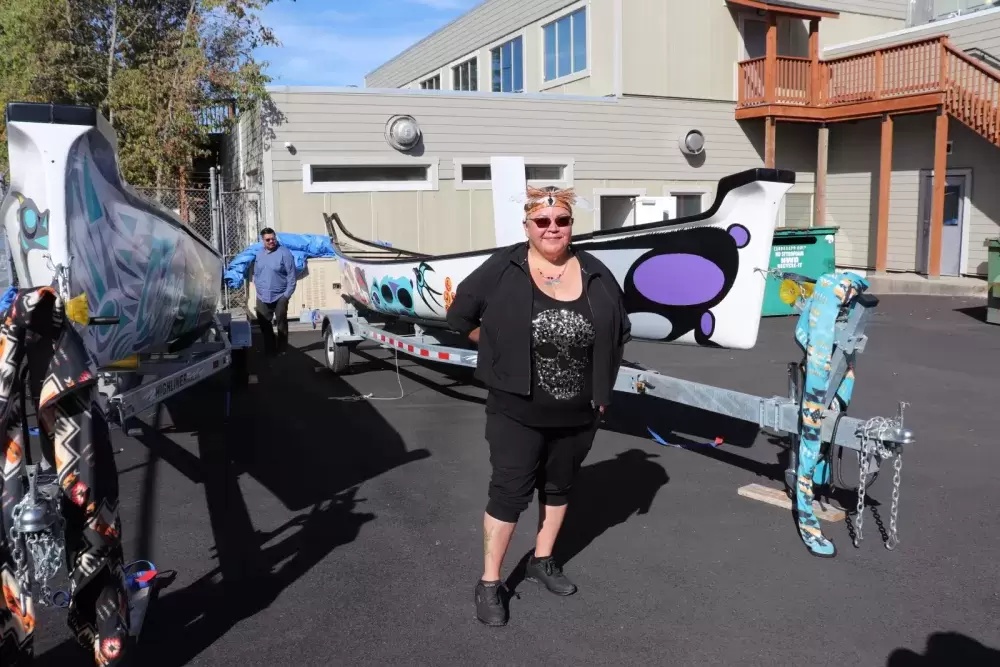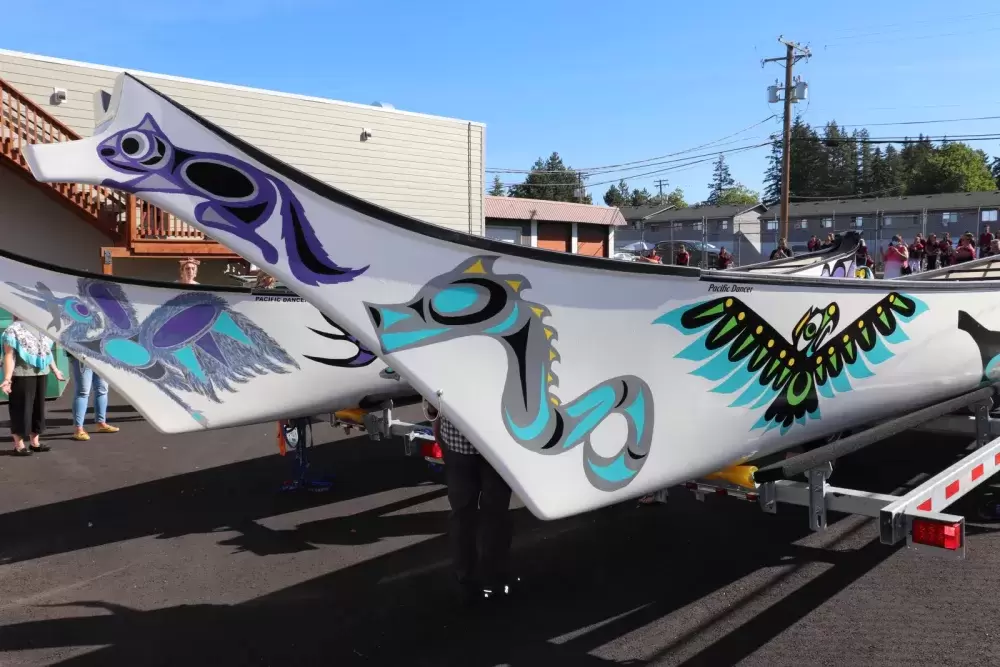A pair of 36-foot fibreglass canoes purchased by Usma Nuu-chah-nulth Family and Child Services in 2021 have been officially named and decorated with Nuu-chah-nulth art, as they are now available to help children in care stay connected with their culture. The canoes were unveiled at a Sept. 8 Usma open house held at their 6th Avenue location.
The canoes will be used for summer activities with children in care, so that they can take part in cultural activities like canoe journeys or paddles to their home communities. It is part of Usma efforts to help children in care stay connected to their culture and their communities.
Artist Georgina Haiyupis was commissioned to come up with a design for each canoe based on their names. She put much thought into both the designs and about the safety and well-being of the children that the canoes will carry.
Dozens of people were in attendance, including Nuu-chah-nulth Tribal Council President Judith Sayers, as tarps were pulled off of the beautifully painted canoes.
Haiyupis told the crowd that her designs were made based on the teachings and values of Nuu-chah-nulth culture. The colors were selected not only for their beauty, but also for their easy-to-spot brightness that will keep the children safe while they are on the water.
One canoe is named ʔiiḥcamisukʷin qʷameeʔitq taatna, meaning every child matters. Haiyupis painted an image of a mother bear and her cub, representing the strength of the protector, who has the courage to stand up for what’s right.
“They have the ability to keep fighting even if they’re wounded,” said Haiyupis.
The design also features swallows, a common bird that protectively cares for its young.
The salmon and their eggs represent resilience, as the salmon sacrifice themselves to lay their eggs, regenerating the next cycle.
The second chaputs (canoe) was named ƛuł–ik-yuk, or Sea Serpent. This chaputs features the Thunderbird, representing power, protection and strength, said Haiyupis. She also included images of whales and wolves representing everlasting family bonds and the protection of future generations.
Haiyupis thanked Usma for sharing this gift of canoes with the children.
“Investing in our children is what will restore their identity, their pride and their knowing where they come from – that’s important,” she said.



